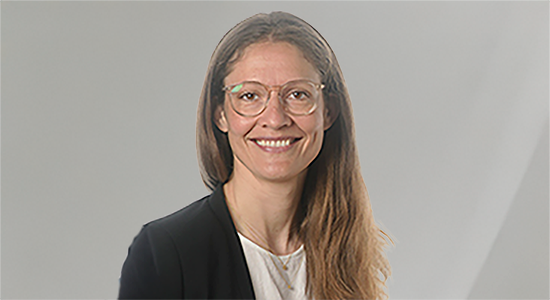Women’s menopausal transitions at work

The purpose of the research project is to illuminate how women's menopausal transitions influence and are influenced by working life.
This includes exploring how to promote better working lives for women experiencing physical, emotional, cognitive, and social challenges during this life stage by developing supportive workplace recommendations.
The project is currently paused while the PhD student is on leave. Activities will resume in August/September 2026.
Despite a growing public interest, there is a dearth of research-based knowledge about women’s menopausal transitions at work in a Danish context.
Simultaneously, there is a growing interest in women’s health and menopause, as well as the overall well-being at work to extend and to promote better working lives.
While a growing number of workplaces around Denmark have an increased focus on flexibility and autonomy in working life, menopause often remains taboo for both women and their workplaces, leading to lack of awareness and openness about the discomforts and challenges some women face.
Our hypothesis is that it is especially challenging to address and seek support in male-dominated sectors, such as within the IT and the industrial sector.
As such, this project illuminates the interplay between women’s working lives and menopausal transitions within these sectors. This includes how to foster sustainable working lives through workplace recommendations that support women in this life phase, and by undertaking a more proactive approach toward menopause on an organizational level.
The research project is led by Associate Professor Maria Hybholt and PhD Student Anna Lyngdal Wulff from the Section of Social Medicine at the Department of Public Health, and Professor Astrid Jespersen from Copenhagen Center for Health Research in the Humanities (CoRe) at the SAXO Institute.
In this project, we analyze women’s menopausal transitions at work as a complex cultural, emotional and bodily phenomenon.
While each woman experiences a unique cocktail of signs and challenges during the menopausal transition discomforts can include sleep disturbances, mood swings, heavy periods, poor memory, poor concentration, and hot flushes, which can result in shame and frustration as well as lead to shorter or longer periods of sick leave from work. Furthermore, menopausal transitions can be negatively associated with taboo, stigma and gendered ageism.
As such, international studies have shown that 25% of women experience that menopausal complaints affect the quality of their working lives.
Similarly, another study has shown that 6% of women stop working due to menopausal complaints, while 17% consider it. In this light, workplace recommendations that support women going through this life phase is key for their well-being at work.
However, for some, menopausal transitions can also be associated positively with new opportunities, freedom, career advancements, self-development, and consolidated expertise.
Thus, the aim of this project is not only to illuminate challenges, but also emphasize the opportunities, resources and capabilities that arise during this life phase, which can be key for the development and implementation of workplace recommendations on how to undertake a more proactive approach in supporting women experiencing menopausal discomforts.
The project is based on qualitative research methods and is divided into two phases.
During the first phase, we investigate the interplay between menopausal transitions and working life, including how it affects women’s self-perception, and agency.
In the second phase, we explore how to develop workplace recommendations to strengthen women’s agencies in working life during menopause, and how to balance menopause as a collective versus intimate matter.
The first phase of the fieldwork has been completed by September 2025. Participants are women living across Denmark working within the IT or the industrial sector. Empirical data consists in 21 individual interviews with women experiencing menopausal transitions, combined with a total of 133 diary notes, and 91 photos from their everyday (working) lives. All women are aged 45-59 years, in early post-menopause, who report experiencing challenges in their working lives due to menopausal discomforts.
During the empirical data collection process, the participating women have been asked to document and describe bodily sensations, emotional and social aspects, as well as practical and physical conditions in their working lives to explore how these factors influence their experiences of menopause. This includes how they manage, mask, and mitigate menopausal discomforts in their working lives.
In the second phase, to develop workplace recommendations for a proactive approach toward menopause, we conduct focus group interviews with employers and employees across organizational levels to explore how to balance menopause as a collective versus intimate matter, and how workplaces can be assisted in creating a supportive workplace environment for women during menopausal transitions.
As such, we keep a special focus on the impact of the physical, material and practical working conditions as well as the cultural and social norms in working life that promote and challenge healthy menopausal transitions at work.
The project’s results will be published in relevant academic and non-academic journals, and results will be shared through other relevant media platforms.
Furthermore, insights from the research project will be translated into other formats to assist workplaces in undertaking a more proactive approach to support women during this – for some – challenging life phase.
We will ensure that our publications will be listed on this website for those interested in our research results.
Researchers
| Name | Title | Phone | |
|---|---|---|---|
| Anna Lyngdal Wulff | PhD Fellow | +4535320030 | |
| Astrid Pernille Jespersen | Professor | ||
| Maria Hybholt | Associate Professor | +4535320840 |

